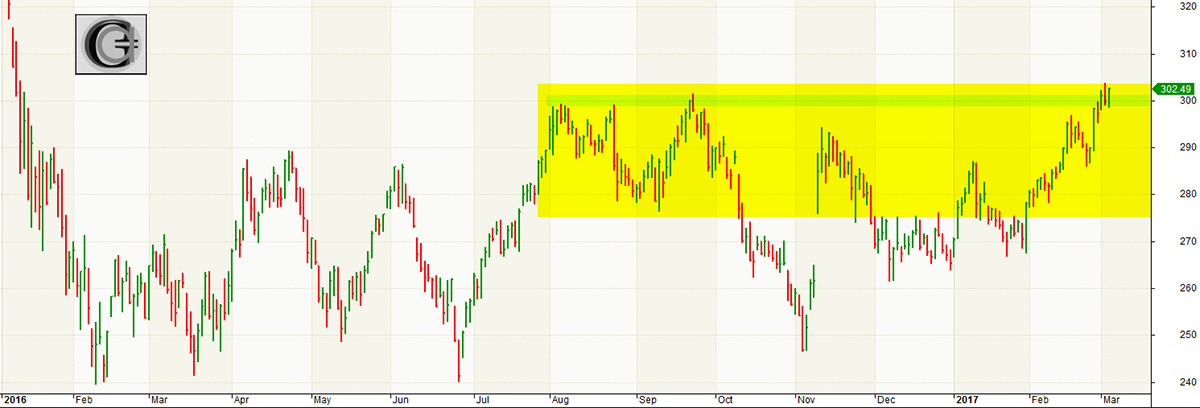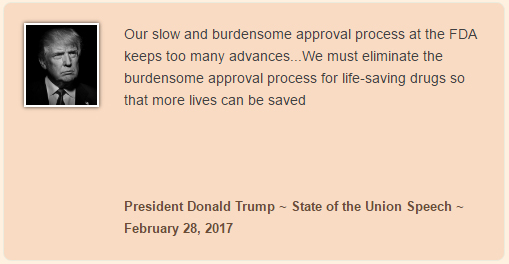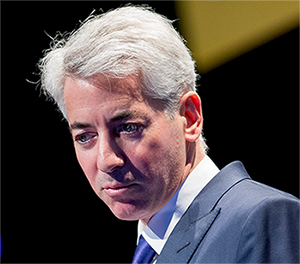Biotech Pulse! Sector Has Momentum

Biotechnology continues to be a sector on the rebound after a punishing 2016. In the first two months of this year, the Nasdaq Biotechnology Index (IBB) has already climbed +12%, compared to the S&P (SPY) gain of +6% and the Nasdaq (QQQ) rise of +8%. The Prudent Biotech Portfolio also moved higher with a gain of +26% for the same two-month period.
The biotech benchmark, IBB, stands poised at 52-week highs, at a technical level of 300, which has been a strong resistance level in the past but was recently breached earlier this month.

Source: GraycellAdvisors.com
In an article in November 2016, "Biotech Bonanza - 5 Reasons for Biotech Stocks to Shine," we had noted:
"The pendulum has swung in the other direction, in favor of biotechs, and Biotechnology is poised to become a leading sector heading into 2017."
We believe biotechnology stocks are well-positioned to accrue further gains and build on the early stages of the sector rally.
Nominee for FDA Commissioner

The Trump administration announced Scott Gottlieb as its nominee to lead the Food and Drug Administration (FDA). Of the three candidates whose names were short-listed, Gottlieb was favored by the industry and considered more mainstream compared to the other two candidates, who either advocated drug testing to be focused solely on safety while letting the market and the patient population determine the efficacy or were anti-FDA.
Scott Gottlieb, who has a physician background and was Deputy Commissioner of FDA under the George W. Bush administration, has a record of supporting regulatory reform to speed up the drug approval process and consequently bring down costs. A focus on the drug approval process is an approach that President Trump has been shifting towards to bring down the prices, instead of pushing for Medicare price negotiation ability. As recently as the State of the Union address, Trump mentioned:

As the nomination makes its way to the Senate floor for confirmation, more will be learned about Gottlieb's deregulatory approach. Overall, we believe this is a major positive for the biotechnology sector which will be a prime beneficiary of any process streamlining that speeds up drug approvals and reduce costs.
Medicare Price Negotiation Appears to Be Not on the Table
There was a flurry of activity last week as Trump sat down with the two sponsors of a draft bill that would permit Medicare to engage in price negotiations. The Democratic Representatives, Elijah Cummings and Peter Welch, described the President's response as enthusiastic and directing the Health & Human Services Secretary to "get it done." Furthermore, later in the week on Friday, Rep. Cummings disclosed a call from the President in the morning as well as in the evening to further discuss the Bill. This heightened level of activity suggests that Trump is getting closer to announcing his plans for reducing drug costs. Interestingly, on Sunday, March 12, Mick Mulvaney, Director of the Office of Management & Budget (OMB), said on a news program that the focus is on getting rid of regulations, and side-stepped any suggestion of price negotiation power for Medicare. Here's the Mulvaney's take on the question posed to him:
Stephanopoulos: So is the administration going to get fully behind this idea to have Medicare negotiate drug prices directly?
Mulvaney: What I'm more familiar with, George, is how we're looking at trying to figure out a way to drive down drug prices through changing the regulatory requirement. Mr. Cummings, Congressman Cummings and I used to serve on the Oversight and Government Reform Committee together...And one of the things that he and I both learned together was that it's government regulation, the inability for drug companies and medical device manufacturers to get things approved, government intervention that is driving up the cost. And I do know for a fact the administration is going to be looking directly at trying to figure out a way to fix that. And I know and hope that we can count on Congressman Cummings' assistance in doing that."
We believe the Trump administration at this time has settled on a policy of reducing regulation and speeding drug approval process to achieve drug cost savings. Deemphasizing any Medicare negotiations is a positive for the biotech and pharmaceutical industries. We anticipate some clarity may be forthcoming soon and perhaps as early as this month.
M&A Chatter
Mergers & Acquisitions (M&A) remains an ongoing theme in the Biotech sector this year, as pharmaceuticals begin to focus on greater innovation in the absence of constrained ability to raise prices. Last week, it was rumored that Gilead (GILD) is close to bidding on Incyte Pharmaceuticals (INCY). Gilead has been under pressure to boost its growth, as its Hepatitis-C franchise has continued to shrink in the face of a smaller patient pool and new competition. Last week, analysts at Barclays Bank took an unusual step of writing an open letter to the company management urging an aggressive acquisition strategy to add new product lines.
There has been strong interest in oncology assets like Tesaro (TSRO), Clovis Oncology (CLVS), Exelis (EXEL), and Array Biopharma (ARRY), amongst others. At the same time, Gilead is not the only one looking for acquisitions. Many of the leading pharmaceutical and biotechnology companies are looking for acquisition opportunities. We discussed the impetus for M&A and its supportive role in valuations for the sector in an earlier article, Can Trump be an M&A Catalyst.
AstraZeneca Shows Strong Results in Ovarian Cancer Trial and Swirls Up the M&A Pot
On Tuesday, March 14, AstraZeneca (AZN) reported strong results in its Phase-3 trial for its PARP inhibitor, Lynparza, which delayed the resurgence of ovarian cancer by over 2 years. This compares quite favorably against a competing PARP inhibitor from Tesaro, which was believed to have the broadest efficacy. Tesaro's stock had soared over last few months as its unique PARP inhibitor made the Company into a highly attractive acquisition target. But if PARP's are fairly similar, then another company Clovis Oncology with a much lower valuation and a PARP product, Rubraca, can stand to gain. Tesaro's stock closed, down 10% on the news, while Clovis Oncology was up 10% to a new 52-week high.

Ackman Sells Valeant Stake
Bill Ackman finally threw in the towel on Valeant Pharmaceuticals (VRX), selling his Company's entire stake of over 27 million shares, on Monday, March 14, after a 3-year saga. It is believed that Ackman's company, Pershing Square Capital Management, may have lost at least $2.8 billion and most likely more on this investment.
Biotechnology has many compelling drivers and if the Medicare pricing issue is resolved in its favor, we believe it will begin a very powerful next leg up for the sector.
This is a snapshot of some newsworthy items in the sector, along with our analysis. Please feel free to point out errors or add to the discussion in the Comments section.
As always, do your due diligence.
Disclosure: I/we have no positions in any stocks mentioned, and no plans to initiate any positions within the next 72 hours.



